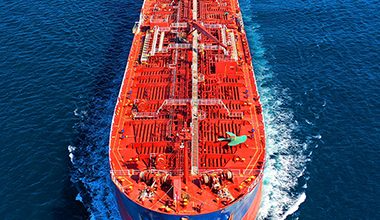As global trade increasingly relies on maritime transportation, the importance of maritime security has grown significantly. However, with this expansion comes the pressing need to address environmental safety in the maritime sector. The intersection of maritime security and environmental safety is important for ensuring the protection of marine ecosystems, preventing pollution, and safeguarding human health. This article explores the relationship between these two domains and highlights the initiatives that can promote a safer and more sustainable maritime environment.
Prevention of maritime pollution:
Maritime security measures are essential in preventing environmental pollution from shipping activities. Incidents such as oil spills, chemical leaks, and waste dumping can have devastating effects on marine ecosystems. By implementing stringent security protocols, including monitoring and surveillance of vessel operations, authorities can ensure compliance with environmental regulations and prevent illegal dumping practices. Regular inspections and audits of vessels also play a significant role in minimizing the risk of pollution incidents.
Protecting marine biodiversity:
The protection of marine biodiversity is a shared responsibility between maritime security and environmental safety. Security measures are necessary to protect sensitive marine habitats from illegal fishing, poaching, and overexploitation. By monitoring fishing activities and enforcing regulations, authorities can prevent destructive practices that threaten marine ecosystems. Additionally, the establishment of marine protected areas (MPAs) can improve biodiversity conservation efforts while ensuring that maritime security operations are in place to safeguard these vital habitats.
Response to environmental incidents:
Effective maritime security is essential for responding to environmental incidents quickly. In the event of an oil spill or hazardous material release, coordinated response efforts are important for minimizing environmental damage. Security agencies, environmental organizations, and shipping companies must work together to develop contingency plans that outline roles, responsibilities, and response protocols. Training exercises and simulations can help ensure that all stakeholders are prepared to respond swiftly and effectively to environmental emergencies.
Promoting sustainable practices:
The intersection of maritime security and environmental safety also presents an opportunity to promote sustainable practices within the shipping industry. Implementing eco-friendly technologies and practices, such as using cleaner fuels and adopting energy-efficient vessel designs, can reduce the environmental impact of maritime operations. By considering sustainability, shipping companies improve their security posture and also contribute to the preservation of marine environments.
